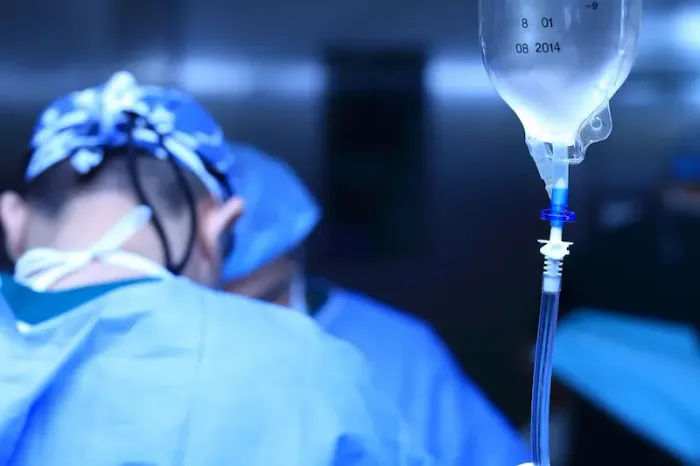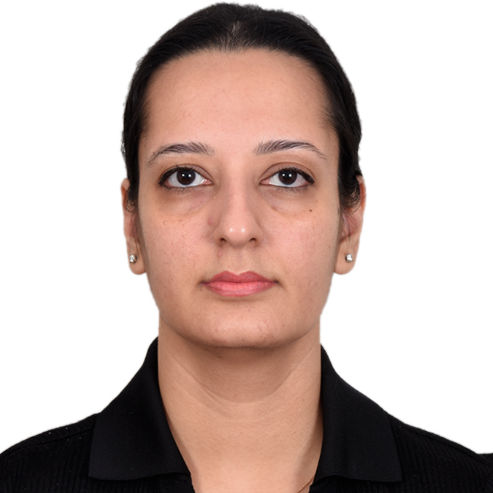Your Complete Guide to General Surgery: Procedures, Recovery & More
Discover everything about general surgery—from common procedures and recovery tips to advanced techniques—so you can feel informed, prepared, and confident.


Introduction
Facing the prospect of surgery can be daunting. The term "general surgery" might sound broad or vague, leaving you with more questions than answers. What exactly does it involve? Is it a major operation? How long will recovery take? This guide is designed to demystify the world of general surgery, providing you with a clear, comprehensive understanding from start to finish. We'll break down the common procedures, explore the advanced techniques used today, and walk you through the entire patient journey—from your first consultation to full recovery. Whether you're seeking information for yourself or a loved one, our goal is to empower you with knowledge, easing anxieties and helping you feel prepared and confident. Think of this as your go-to resource for everything related to general surgery.
What is General Surgery? Defining the Scope
At its core, general surgery is a medical specialty focused on treating conditions that require physical intervention or an operation. Contrary to what the name might imply, general surgeons are not "jacks-of-all-trades" but rather specialists with extensive training in the surgical treatment of a wide range of diseases, particularly those affecting the abdomen.
The Versatile Role of a General Surgeon
A general surgeon is a highly trained physician who manages a broad spectrum of surgical conditions. Their expertise is not limited to performing operations. They are responsible for the comprehensive care of surgical patients, which includes making a diagnosis, providing pre-operative care (optimising a patient's health for surgery), performing the operation itself, and managing post-operative recovery and potential complications. This makes them a central figure in a patient's healthcare team. Many general surgeons also sub-specialise in areas like surgical oncology (cancer surgery), trauma surgery, or minimally invasive procedures.
Beyond the Abdomen: What Body Parts Do They Treat?
While the abdomen is their primary domain—including organs like the appendix, gallbladder, stomach, intestines, liver, and pancreas—the scope of general surgery is surprisingly wide. A general surgeon's expertise often extends to:
1. The breast (for biopsies, lumpectomies, or mastectomies).
2. The skin and soft tissues (removing cysts, tumors, or treating infected tissue).
3. The endocrine system (performing thyroidectomies or parathyroidectomies).
4. The blood vessels (in certain cases).
5. The management of critically ill patients with surgical needs.
Consult a General Surgeon for the best advice
Common General Surgery Procedures Explained
Understanding the specific procedures can help alleviate the fear of the unknown. Here are some of the most common operations performed by general surgeons.
Minimally Invasive Surgery: Laparoscopy and Robotic-Assisted Surgery
A significant advancement in general surgery is the shift towards minimally invasive techniques. Instead of one large incision, surgeons make several small keyhole incisions. They then insert a tiny camera (laparoscope) and specialised instruments to perform the operation. Robotic-assisted surgery offers even greater precision, with the surgeon controlling robotic arms from a console.
Benefits: Less post-operative pain, smaller scars, reduced blood loss, shorter hospital stays, and faster recovery times.
Example: A laparoscopic cholecystectomy (gallbladder removal) is now the gold standard, often allowing patients to go home the same day.
Common Abdominal Procedures
Appendectomy: Removing an Inflamed Appendix
An appendectomy is the surgical removal of the appendix, typically performed as an emergency procedure to treat appendicitis. If left untreated, an inflamed appendix can rupture, leading to a serious infection. This is one of the most common emergency general surgery procedures.
Cholecystectomy: Gallbladder Removal Surgery
This procedure involves removing the gallbladder, a small organ that stores bile. It is most commonly performed to treat gallstones that cause pain, infection, or inflammation. Patients can live a normal life without a gallbladder.
Hernia Repair: Fixing a Weakness in the Muscle Wall
A hernia occurs when an organ or tissue pushes through a weak spot in the surrounding muscle. Hernia repair surgery involves pushing the tissue back into place and reinforcing the muscle wall with stitches or a synthetic mesh. Common types include inguinal (groin) and umbilical (belly button) hernias.
Breast Surgery: Biopsies, Lumpectomies, and Mastectomies
General surgeons play a crucial role in the diagnosis and treatment of breast disease. They perform biopsies to determine if a lump is cancerous. If cancer is found, they may perform a lumpectomy (removing the tumor and a small margin of tissue) or a mastectomy (removing the entire breast). The recovery time after breast surgery varies depending on the procedure's extent.
Skin and Soft Tissue Procedures
This includes a wide range of operations, from removing benign skin lesions, cysts, and lipomas to treating complex skin infections, abscesses, or performing skin grafts for severe wounds.
The Patient's Journey: From Consultation to Recovery
Knowing what to expect at each stage can make the surgical process much less stressful.
Your First Consultation: What to Ask Your Surgeon
This is your opportunity to understand your condition and the proposed treatment. Come prepared with questions. Essential ones include:
1. Why is this surgery necessary?
2. What are the risks and benefits?
3. What are the non-surgical alternatives?
4. How many times have you performed this procedure?
5. What can I expect during recovery?
Preparing for Surgery: A Step-by-Step Guide
Your surgical team will give you specific instructions. This often involves:
• Pre-operative tests: Blood tests, an ECG, or a chest X-ray to ensure you are fit for anaesthesia.
• Fasting: Typically, no food or drink for 6-8 hours before the operation.
• Medication adjustments: You may need to temporarily stop certain medications like blood thinners.
• Lifestyle changes: Stopping smoking and eating a healthy diet can significantly improve healing. If you need guidance on how to prepare for hernia surgery or any other procedure, your doctor from Apollo24|7 can provide personalised advice during an online consultation.
What to Expect on the Day of Surgery
You will check in, change into a hospital gown, and meet with the anaesthesiologist and your surgeon. You will then be taken to the operating room. The type of anaesthesia (general, regional, or local) will depend on the procedure.
The Road to Recovery: Post-Operative Care Tips
Recovery begins immediately after surgery. Key aspects include:
• Pain Management: Your team will provide medication to keep you comfortable.
• Wound Care: Keeping the incision site clean and dry is crucial to prevent infection.
• Activity: Gradual movement is encouraged to prevent blood clots, but heavy lifting must be avoided.
• Diet: You may start with clear liquids and gradually return to solid foods.
• Follow-up: Attending all post-operative appointments is vital for monitoring your healing. If your condition does not improve after surgery or you experience signs of infection like fever or increased redness, book a physical visit to a doctor with Apollo24|7 immediately.
Conclusion
The field of general surgery has evolved tremendously, offering patients effective treatments with increasingly faster and more comfortable recoveries. While the idea of an operation can be intimidating, understanding the "what," "why," and "how" can transform anxiety into confidence. Remember, your general surgeon is your partner in health, guiding you through each step of the process. By asking informed questions and actively participating in your care, you take control of your health journey. Use this guide as a starting point for conversations with your healthcare provider to ensure you receive the best possible care tailored to your unique needs.
Consult a General Surgeon for the best advice
Consult a General Surgeon for the best advice

Dr. Vidita Powle
General Surgeon
9 Years • "MBBS, DNB General Surgery, MRCS, Fellowship in Head & Neck Surgical Oncology, Fellowship in Robotic Surgery. "
Pune
Apollo Hospitals Pune, Pune

Dr. D.s. Sai Babu
Surgical Gastroenterologist
25 Years • F.S.G.E, (PDCC- NIMS) F.M.A.S, F.A.C.S, DIP. M.A.S, F.A.C.S (USA) M.S (GEN-SURGERY) – NTR UNIVERSITY OF HEALTH SCIENCES. M.B.B.S ANDHRA UNIVERSITY.
Hyderguda
Apollo Hospitals Hyderguda, Hyderguda

Dr Agasthya Dharmapuri
General and Laparoscopic Surgeon
10 Years • MBBS, MS(General Surgery), FMAS
Arepally
APOLLO REACH NSR HOSPITALS, Arepally

Dr. Snita Sinukumar
General Surgeon
11 Years • MBBS, MS General Surgery, MCh ( Surgical Oncology)
Pune
Apollo Hospitals Pune, Pune
Dr. S. Syed Mohamed Ashiq
General Surgeon
8 Years • MBBS,MS (General Surgery)
Tiruchirappalli
Apollo Speciality Hospitals Old Palpannai, Tiruchirappalli
Consult a General Surgeon for the best advice

Dr. Vidita Powle
General Surgeon
9 Years • "MBBS, DNB General Surgery, MRCS, Fellowship in Head & Neck Surgical Oncology, Fellowship in Robotic Surgery. "
Pune
Apollo Hospitals Pune, Pune

Dr. D.s. Sai Babu
Surgical Gastroenterologist
25 Years • F.S.G.E, (PDCC- NIMS) F.M.A.S, F.A.C.S, DIP. M.A.S, F.A.C.S (USA) M.S (GEN-SURGERY) – NTR UNIVERSITY OF HEALTH SCIENCES. M.B.B.S ANDHRA UNIVERSITY.
Hyderguda
Apollo Hospitals Hyderguda, Hyderguda

Dr Agasthya Dharmapuri
General and Laparoscopic Surgeon
10 Years • MBBS, MS(General Surgery), FMAS
Arepally
APOLLO REACH NSR HOSPITALS, Arepally

Dr. Snita Sinukumar
General Surgeon
11 Years • MBBS, MS General Surgery, MCh ( Surgical Oncology)
Pune
Apollo Hospitals Pune, Pune
Dr. S. Syed Mohamed Ashiq
General Surgeon
8 Years • MBBS,MS (General Surgery)
Tiruchirappalli
Apollo Speciality Hospitals Old Palpannai, Tiruchirappalli
More articles from General Medical Consultation
Frequently Asked Questions
1. What's the difference between general surgery and specialised surgery?
General surgery covers a broad range of common conditions, especially in the abdomen. Specialised surgery (e.g., cardiac or neurosurgery) focuses on a specific organ system or disease type. Many general surgeons also have sub-specialty interests.
2. How long does it take to recover from a laparoscopic surgery?
Recovery is significantly faster than open surgery. For a routine laparoscopic procedure like a gallbladder removal, many people return to light activities within a week and full activities within 2-4 weeks. Your surgeon will provide a personalised timeline.
3. Are there non-surgical options for conditions like hernias or gallstones?
In some cases, yes. Watchful waiting might be an option for a small, asymptomatic hernia. However, surgery is often the only definitive treatment once symptoms develop or there's a risk of complications. For gallstones, if they are not causing symptoms, surgery may not be immediately necessary.
4. What are the most common risks of general surgery?
All surgeries carry some risk, including reactions to anaesthesia, bleeding, infection, and blood clots. However, these risks are generally low, and your surgical team takes extensive precautions to minimise them.
5. How do I know if I need surgery?
This decision is made collaboratively between you and your doctor, based on your diagnosis, symptoms, overall health, and the risks and benefits of surgery versus other treatments. If you are experiencing persistent abdominal pain or other concerning symptoms, consult a doctor online with Apollo24|7 for an initial evaluation.




